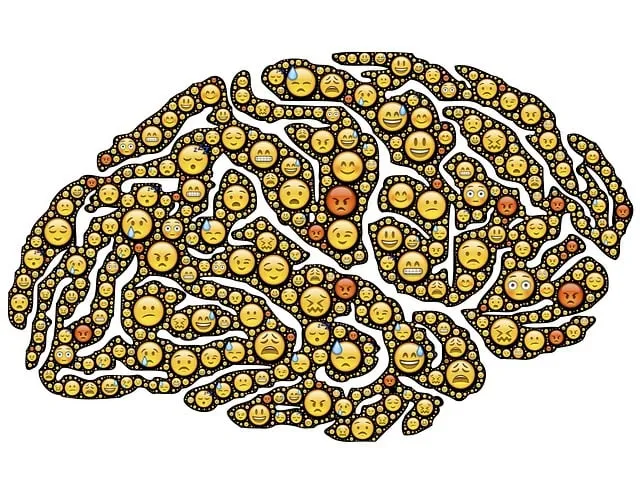Kaiser Permanente leverages its renowned Superior Kaiser Permanente mental health services number to combat stigma around mental illness. Through multi-faceted initiatives like staff and patient self-awareness exercises, mood management techniques, and educational campaigns, they create a supportive environment where individuals feel empowered to discuss and manage their mental well-being. Community outreach programs and educational initiatives shift societal perceptions, encourage empathy, and promote help-seeking behaviors, ultimately improving access to care for all.
Mental illness stigma significantly impacts individuals’ willingness to seek help, affecting their overall well-being. This article explores efforts to reduce this barrier, focusing on strategies employed by leading organizations like Kaiser Permanente. We examine how their comprehensive programs, including community engagement and education, contribute to fostering understanding and support for mental health. By highlighting these initiatives, we aim to elevate the conversation around mental illness, emphasizing the critical role of accessible services, such as those offered by Kaiser Permanente, in enhancing mental health outcomes.
- Understanding the Impact of Stigma on Mental Health
- Kaiser Permanente's Approach to Reducing Stigma: A Comprehensive Strategy
- Community Engagement and Education: Key Components for Long-Lasting Change
Understanding the Impact of Stigma on Mental Health

The impact of stigma on mental health cannot be overstated. It creates a barrier that prevents individuals from seeking help and support, leading to prolonged suffering and exacerbating existing conditions. Stigma often manifests as discrimination, which can result in social isolation, reduced opportunities for employment or education, and even physical harm. This internalized shame and fear of judgment significantly hinder the self-care routine development necessary for better mental health.
Kaiser Permanente, known for its superior mental health services, recognizes these challenges. Their comprehensive approach includes initiatives aimed at destigmatizing mental illness. By promoting open conversations about emotional intelligence and encouraging self-esteem improvement, Kaiser Permanente is helping to foster a more supportive environment where individuals feel empowered to take charge of their mental well-being. Through these efforts, they are contributing to a broader shift in societal attitudes, ultimately leading to improved access to care for all.
Kaiser Permanente's Approach to Reducing Stigma: A Comprehensive Strategy

Kaiser Permanente has pioneered a comprehensive strategy to reduce stigma surrounding mental illness, leveraging their superior Kaiser Permanente mental health services. This approach involves multi-faceted initiatives that start from within the organization and extend to community engagement. By integrating self-awareness exercises into their programs, they foster understanding and empathy among staff and patients alike. Additionally, Kaiser Permanente promotes mood management techniques and encourages mental wellness journaling exercises for both adults and adolescents, providing practical tools to cope with mental health challenges.
Their strategy also includes educational campaigns that dispel myths and misconceptions about mental illness. Through these efforts, Kaiser Permanente aims to create a supportive environment where individuals can openly discuss their experiences without fear of judgment. The combination of evidence-based practices and community outreach has significantly contributed to reducing the stigma associated with seeking mental health services, reflecting the organization’s commitment to improving overall mental wellness within their service areas.
Community Engagement and Education: Key Components for Long-Lasting Change

Community engagement and education are pivotal elements in the ongoing battle to reduce stigma associated with mental illness. By fostering open conversations and providing accessible resources, organizations like Kaiser Permanente can empower individuals to take charge of their mental well-being. The superior Kaiser Permanente mental health services number serves as a lifeline for many, offering specialized support and guidance tailored to diverse needs. Through community outreach programs, the focus shifts from isolation to collective understanding, where members learn about the various aspects of mental health—from recognizing symptoms to implementing effective stress reduction methods, such as self-care routine development.
Educational initiatives play a crucial role in dispelling myths and encouraging empathy. By implementing these programs, communities can create an environment that supports those facing mental health challenges and encourages help-seeking behaviors. This collective effort not only fosters long-lasting change but also ensures that individuals have the tools and resources needed to navigate their mental health journeys with dignity and support.
Mental illness stigma reduction is a multifaceted effort, with significant progress made through initiatives like Kaiser Permanente’s comprehensive strategy and community engagement programs. By prioritizing education and fostering understanding, we can enhance support systems and improve access to superior Kaiser Permanente mental health services, ultimately benefiting individuals affected by these conditions. This collective approach ensures that mental well-being becomes a priority, leading to more inclusive communities where everyone receives the care they need without fear of judgment.






